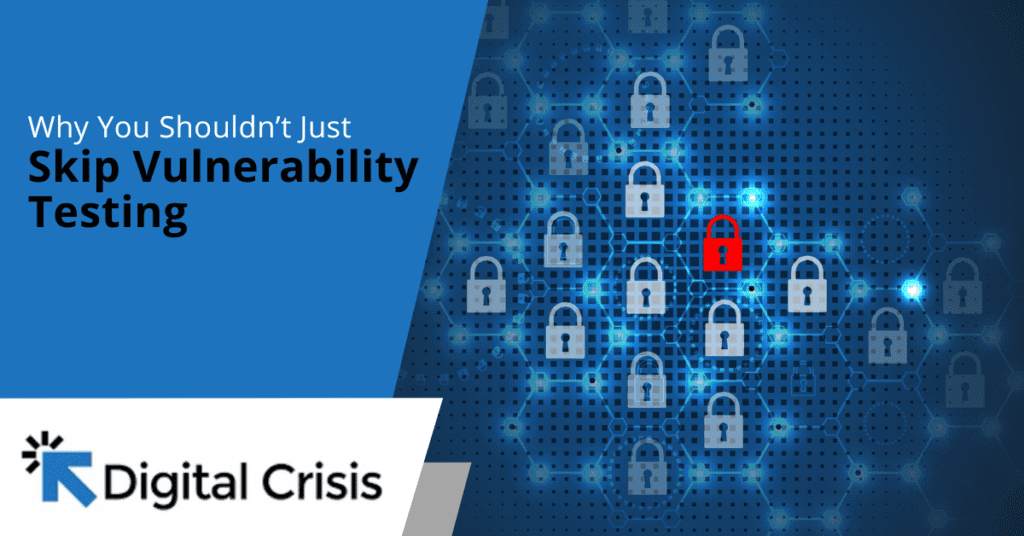
In today’s digital landscape, where cyber threats loom large and data breaches are becoming increasingly common, ensuring the security of your digital assets is paramount. One crucial aspect of this security is vulnerability testing.
Yet, many businesses overlook or underestimate the importance of this practice, often due to misconceptions or a lack of understanding. In this article, we delve into why vulnerability testing is essential and why skipping it can be a costly mistake.
Vulnerability testing, also known as vulnerability assessment, is the process of identifying, assessing, and prioritizing security vulnerabilities in software, networks, systems, or applications. It involves simulating potential attacks to uncover weaknesses that malicious actors could exploit.
This proactive approach enables organizations to address vulnerabilities before they can be exploited, thus reducing the risk of security breaches.
There are various types of vulnerability testing, including:
One of the primary reasons vulnerability testing is crucial is its role in mitigating security risks. By identifying and addressing vulnerabilities proactively, organizations can significantly reduce the likelihood of successful cyber attacks. This proactive approach is far more effective and less costly than reacting to security breaches after they occur.
In many industries, compliance with regulatory standards and requirements is mandatory. Vulnerability testing is often a prerequisite for compliance with regulations such as the Health Insurance Portability and Accountability Act (HIPAA), Payment Card Industry Data Security Standard (PCI DSS), and General Data Protection Regulation (GDPR). Failing to conduct vulnerability testing can result in hefty fines and reputational damage for non-compliance.
A data breach can have severe consequences for an organization’s reputation and brand image. Customers and clients trust businesses with their sensitive information, and a security incident can erode that trust irreparably. By investing in vulnerability testing and demonstrating a commitment to security, organizations can reassure stakeholders and safeguard their reputation.
While implementing robust security measures, including vulnerability testing, incurs upfront costs, the potential cost savings in the long run are substantial. The financial ramifications of a data breach can be staggering, including legal fees, regulatory fines, remediation costs, and loss of revenue. Investing in vulnerability testing is a proactive measure that can help avoid these costly repercussions.
One common misconception among small and medium-sized businesses is that they are not a target for cyber attacks. However, cybercriminals often target smaller organizations precisely because they may have weaker security postures and are perceived as easier targets. Regardless of size or industry, any organization that stores or processes sensitive data is at risk and should prioritize security measures such as vulnerability testing.
Some organizations mistakenly believe that their existing security measures, such as firewalls and antivirus software, are sufficient to protect them from cyber threats. While these measures are essential components of a layered security approach, they are not foolproof. Vulnerability testing provides an additional layer of defense by identifying gaps and weaknesses that may exist despite other security measures.
Another misconception is that vulnerability testing is prohibitively expensive, especially for smaller businesses with limited budgets. While there are costs associated with vulnerability testing, the potential costs of a data breach far outweigh the investment in security measures. Additionally, there are various affordable options available, including automated vulnerability scanning tools and outsourcing to third-party security firms.
Vulnerability testing is a critical component of any comprehensive cybersecurity strategy. By identifying and addressing security vulnerabilities proactively, organizations can mitigate risks, comply with regulatory requirements, safeguard their reputation, and ultimately save costs in the long run.
Skipping vulnerability testing is not only a risky proposition but also a potentially costly mistake. Therefore, it is essential for businesses of all sizes and industries to prioritize vulnerability testing as part of their security practices.
For expert guidance on vulnerability testing and enhancing your organization’s cybersecurity posture, contact Digital Crisis. We are committed to helping businesses protect their digital assets and mitigate cyber threats effectively.